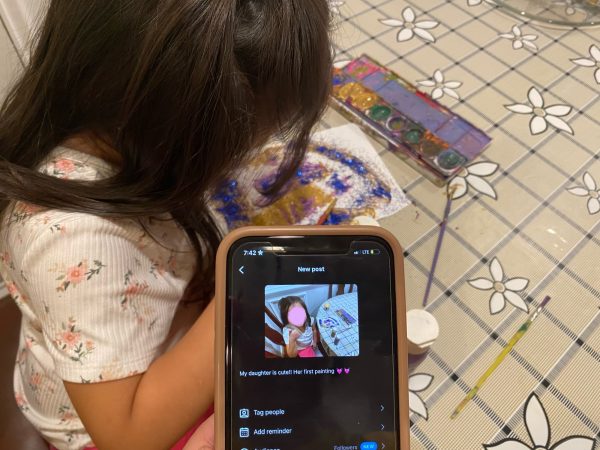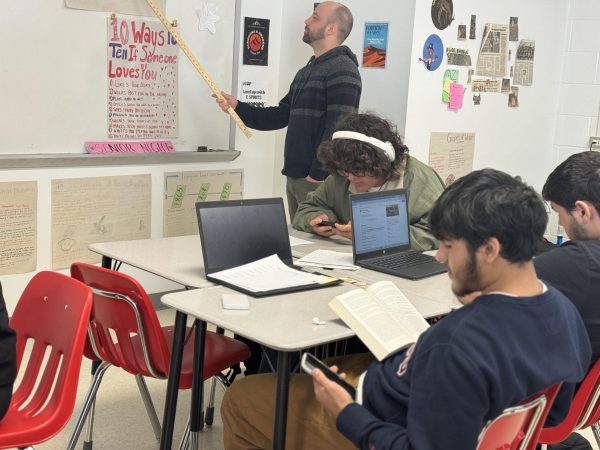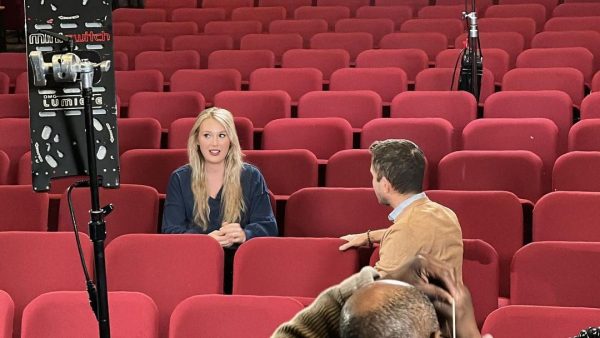Is FLE class effective?
According to a 2017 study conducted by The Center for Disease Control, 39.5% of teenagers have had sexual intercourse.
Of that percentage, 3.4% had sex before they were 13.
13.8% reported that they have never used any sort of protection, while 91% said that they had never been tested for STDs.
When publishing this data, the CDC noted that risky sexual behavior in teens can be reduced by educating them more on things like contraceptives and STD testing.
The question is, are teenagers actually learning enough information about sex and relationships in order to make healthy decisions for themselves?
Some would say the answer is no.
Since elementary school, students at Fairfax County schools have had the option to participate in Family Life Education (FLE).
In these classes, teachers give students a variety of lessons, ranging from the makeup of a family to dating to sex trafficking.
“It’s important to have this information, whether you’re using it now or later in life,” PE and health teacher Cragin Winkler said. ”
For years, parents and older students have complained about the curriculum.
Some say that there is too much information provided to students, while others argue that their kids are not taught enough.
In reality, the course does not add much benefit to students’ lives.
Course guidelines have been decided with politics and parents’ opinions in mind, not what is best for the teens that it was meant for.
FLE places too much emphasis on things like puberty and anatomy. It doesn’t leave much space or time for sex.
In middle school, students do not get the opportunity to have questions about certain topics, such as oral sex, answered because the course guidelines do not allow it.
One of the major points of FLE is to teach teens how to make healthy sexual choices.
How is this goal supposed to be achieved if student’s curiosity on the topic is shut down and deemed inappropriate for class?
Another problem with FLE is that when sex is discussed, it’s with abstinence heavy lessons.
Throughout middle school, students are encouraged to avoid premarital sex at all costs. There isn’t a single lesson about contraceptives or STDs to benefit those who do participate in sexual activity at that time.
In high school, students are taught about both contraceptives and STDs.
But at this point, abstinence is still emphasized as the ultimate goal.
There’s nothing wrong with abstinence, and it is important that students know about it.
But this is is a massive problem because when teachers are giving students the idea that having sex is wrong, it can make people who have already engaged in sexual activities feel ashamed about their choices.
Another reason why this is an issue is that teens are going to have sex, regardless of what adults say.
With this knowledge in mind, it makes much more sense to teach them to have safe sexual habits. Otherwise, they’ll continue to make poor choices.
Still, the FLE program at FCPS is very inclusive, especially when compared to other schools.
Ninth and tenth grade students learn about abortion as an option, and there are topics about sexuality and transgender people.
“When criticizing FLE, it’s important to note the things that it does do right,” junior Kadijah Janneh said. “We aren’t just focused on heterosexuality in that class, which is really good.”
Most FLE teachers do try to meet students’ needs and answer questions.
“If there’s ever a question that I don’t know the answer to, I’m always okay with saying that I don’t know. I don’t want to give out misinformation, so what I will do is I’ll do research and try to find the right answer,” Winkler said.
But schools are not the only ones at fault for the lack of teenager’s knowledge about healthy sexual behavior.
Another culprit for this issue is parents.
When the topic of sex is brought up, most parents shy away. They dance around the subject in the hopes of sheltering their kids.
In fact, a report done by the CDC said that 75% of parents would rather have their kids take a class like FLE rather than teaching their kids themselves.
“Whenever I try to bring up sex at home, my parents always get annoyed with me,” junior Abby Kitila said. “They shut me down; they don’t want to talk about it.”
It’s easy to understand why parents do this. It’s an uncomfortable talk and they don’t want to believe that their kids are sexually active.
But the reality is that there’s a possibility that they are.
Even if some teens are not sexually active, sex is pretty much everywhere nowadays – from television to movies to music. There’s no way that they don’t have some sort of understanding of what sex is.
Taking that into account, parents should find the time to have a serious conversation with their kids and answer any questions.
Ultimately, kids know what sex is, and most want to learn more about the topics that surround it.
Schools and parents should try their best to answer questions so that teens will practice safe sex and feel

Senior Suad Mohamed is currently the Co-Editor in Chief and this is her fourth year on staff. Last year, she was the In-Depth Editor. Besides The A-Blast,...









